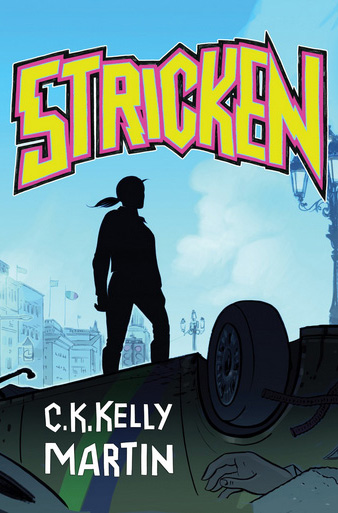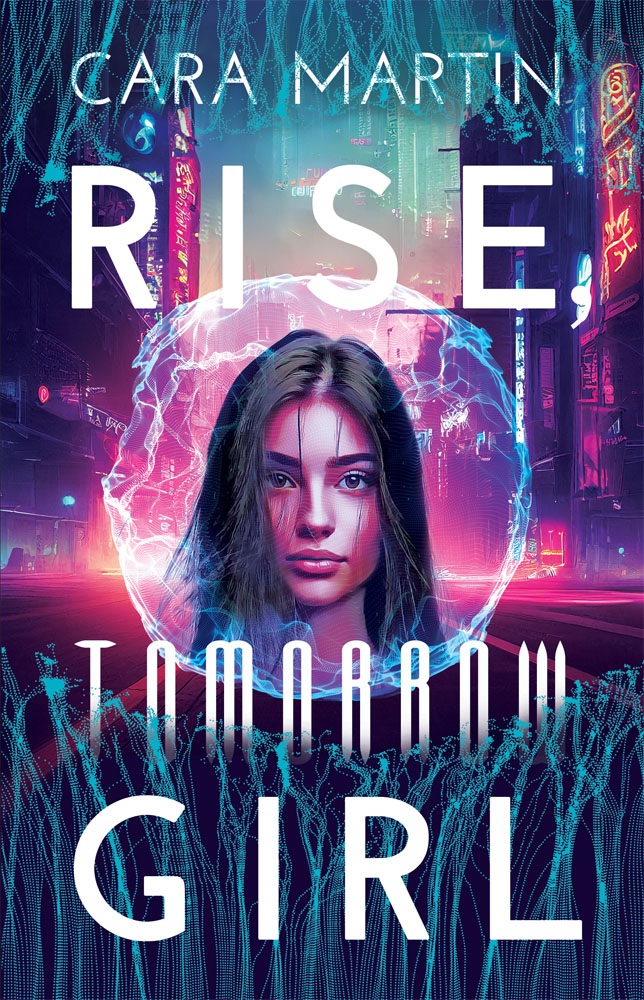Stricken | Chapter One
When it Started
When my friend Taneisha’s parents got separated, the family therapist they saw asked Taneisha to keep a journal of her thoughts and feelings. The therapist said it could help. I really hope so. I’m counting on it.
Day One
One of the funny things about staying in a house that isn’t yours is the noises. You’re not used to the creaking sounds, the electronic whirring of appliances, or the weird random settling din the house makes, sort of like an old man’s knees cracking when he bends to slip on his shoes. At my house back in Kingston, I didn’t even notice those types of things anymore — they were so familiar that I’d stopped hearing them.That always happened eventually in my grandparents’ house in Dublin, too. I’d adjust to the house’s groans and whispers and then never think twice about them. Not until the following July, when I’d have to get used to the nighttime noises of my grandparents’ house afresh. This was my fourth July in Ireland in a row, so you’d think maybe I’d have been over the newness of them already. I wished I were, because I was so tired that I had a claustrophobic feeling behind my eyes that I knew would turn into a headache if I didn’t sleep soon.
I ignored the sensation and stared up at the ceiling in the dark, thinking about the summer ahead of me. Usually we only stayed in Ireland for a month, but my uncles were coming from Australia for a visit near the end of July, so this time Mom and I would be here for the entire summer. Dad had to look after the café he’d opened with my aunt in April and would only be able to make it over for two weeks in mid-August.
Because we spent every July in Dublin, my time in Ireland felt sort of like another life. One with a different house and different friends. But even those differences felt almost normal to me; the only thing that was unusual to start with this visit was that my gran repeated herself more and would ask questions I’d already answered, sometimes even just a minute later. She’d been doing that over FaceTime for months too, but not so much last summer or any of the summers before. My mom said Gran had Alzheimer’s disease and that her memory would slowly get worse and worse, so we had to be very patient with her. I didn’t mind answering questions more than once, or even twenty times; I just wanted Gran to be okay.
Her voice was the thing that woke me up that first July night at my grandparents’ house. The nightstand clock radio read almost two o’clock, and I heard her say something through the wall. My granddad’s voice leaked through the drywall too, loud and surprised. Then I realized it wasn’t any voice that had woken me. It was squealing from the street, like how a train sometimes sounds pulling into a station, only five times louder. I stumbled to the window to look for the source of the noise.
The street was dark and full of shadows. It had gone so quiet that I almost wondered if I’d dreamt the commotion. Suddenly an old woman in a long fur coat careened down the street waving a frying pan. She stopped and whirled around on the pavement, her eyes searching the air and her mouth firing out words with the speed of a machine gun.
I watched the woman advance again, shuffling along the middle of the roadway. Even Irish summers were too warm for the coat she was wearing, and her feet were bare. It made me glad the street was bone dry. “Show yourself!” she roared, her eyes darting from place to place. “I know you’re out there.”
But if there was something out there in the dark with her, it was sticking to the shadows and biting its tongue. Meanwhile, lights flicked on inside a handful of houses; I wasn’t the only one watching her. In the distance, a man stepped onto his front stoop and called something to the woman that I couldn’t quite hear.
She ignored the man, clutching tighter to her frying pan as she stared up at me through my second-storey window. I shivered and stepped back. None of this felt right. The woman had begun to chant the words of a poem. Something about stars running away and shadows eating the moon. Inching back to the window after a few seconds, I ventured another glance at the street, the woman’s singsong words wriggling into my ears.
If she’d seen something threatening, how would any poem help? It didn’t make sense. I was about to go wake my mom when my grandfather stalked into the road. He bent his head close to the woman and laid one of his hands on her shoulder, like he was trying to calm her down. Granddad was good with people, whether they were babies, teenagers, old folks, or what, and I figured he’d have her quiet and relaxed in no time.
But I was wrong.
The old woman swung the frying pan at his chest. If she were any younger she’d probably have managed to hit him. Instead Granddad hopped back, only for a second, and then he clasped her wrist, effortlessly wrestling the frying pan from her grip.
My gran jogged into my line of vision; I’d never seen her walk so fast. Granddad was holding the frying pan while Gran stared steadily into the eyes of the woman in the fur coat, whispering something to her that made the woman nod. Her fur-covered shoulders quivered. Then the woman allowed my gran to lay a hand on her shoulder the way she hadn’t let my granddad. The three of them turned and began making their way up the street, away from my spot at the window.
With everything back under control, I crawled under the covers again and — temporarily forgetting all about the jumble of strange house noises — slept straight through to morning.
Day Two
The next person I laid eyes on was my mother, leaning against the kitchen counter holding a cup of tea to her lips. She smiled when she saw me lope into the kitchen in the sweatpants and T-shirt I’d worn to bed. “Morning, Naomi.”“Morning.” I swallowed my yawn. “Did you see Gran and Granddad and the woman in the street last night?”
Mom nodded, her head tilted to one side. “Deirdre Redmond from up the road. Your gran and granddad say she’s always been sharp as a tack. They don’t know what’s the matter with her. Maybe a side effect of some medication, or dehydration — either can do odd things to a person. Anyway, her daughter’s driven up from Enniscorthy to take her to the doctor. Hopefully they’ll be able to figure out what’s going on.”
“Could she have what Gran has?” My mind had begun to race. “What about the noise beforehand? Mrs. Redmond thought there was something out there with her.”
The line between Mom’s eyes deepened. “What your gran has progresses slowly. There are other types of dementia that are fast moving, but as far as Mrs. Redmond goes, we just don’t know yet.” Mom set her tea down on the counter. “Except that there was nothing out there with her, okay? So don’t worry about that.”
“But Gran and Granddad heard the noise too,” I insisted. “It was so loud that it woke me up.”
Mom seemed doubtful. “I didn’t hear anything. Maybe it was a lorry out on the main road. Sound really carries at night when there’s nothing to mask it.”
A lorry is what people in the UK and Ireland call a big truck. Whenever Mom got back to Ireland her vocabulary slipped from North American back to Irish. But the squealing hadn’t sounded anything like a truck.
“Maybe,” I said. The noise definitely hadn’t been Mrs. Redmond either, so what else could it have been?
Mom looped a finger through the handle of her tea. “Do you remember the time, when you were about two and a half, that you fell asleep on your dad’s lap and his snoring woke you up? You glared at him like you couldn’t believe such a weird sound could come from inside him. Then you patted his cheek and told him to stop it.”
I didn’t remember, but the idea of it made me laugh until my eyes ran. “For real?”
“Oh, yeah.” Mom laughed too, and after that my family did regular things like it was any other day. My grandparents tended their garden, like normal. Mom made me eggs and toast, like normal. I showered, like normal, and texted Ciara and then went over to her house, like normal. For a little while it seemed as if everything would be normal from then on. Like Deirdre Redmond and the noise were just blips in an otherwise average July.
But by now you already know that wasn’t what happened.














